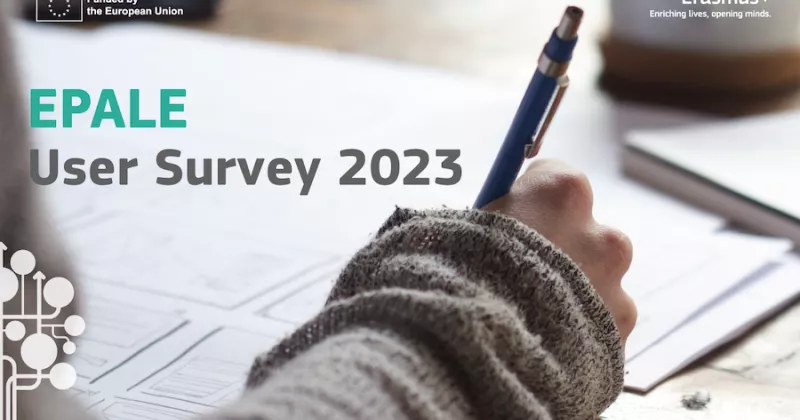Personalised Learning In Group Environments (PLGE) Project

The aim of the Erasmus + KA2 Strategic Partnership project for Adult education 'Personalised Learning In Group Environments' (PLGE) is to provide language teachers with a set of innovative tools in an individual platform, along with the skills and knowledge to be able to offer adult learners high quality, personalised learning opportunities in adult, group language courses. Quarter Mediation (Netherlands) was actively involved, as the partner in the PLGE project, in the creation of all Intellectual Outputs of the project:
PLGE - Handbook on Differentiation in L2 Learning Environments includes the results of the desk research and an analysis of differentiation techniques performed by the PLGE Consortium, as well as a summary of differentiation techniques, methodologies & best practices, and case studies of differentiation in use in the countries involved in the project (Poland, Spain, Netherlands, Italy and United Kingdom).
The handbook is structured in two parts: Methodologies & Techniques and Case studies. The first part contains two related methodologies and techniques chosen as best practice examples by each of the partner organisations involved in the project, as the following:
- Mnemonic Method and Direct method from Poland;
- Classroom corners and CLIL from Spain;
- Storytelling and Drama techniques for teaching from Italy;
- How to organise personalised education and Language diagnostic in multilingual educational settings from the Netherlands;
- Think-pair-share and Graded reader library from the United Kingdom.
The second part includes 10 related case studies, two from each organisation part of the PLGE Consortium.
Standardised Modular ILP (Individual Learning Plan) Framework for L2 Learning Environments consists of 3 parts:
- Learner Needs Assessment Template (LNA)
- Individual Learning Plan Template (ILP)
- Guide on the use of LNA and ILP Templates
The Guide on the use of LNA and ILP Templates provides language teachers with simple and factual tips on how to use the LNA and ILP templates. It contains answers to important questions and step-by-step instructions on how the ILP and LNA implementation procedure should look like.
It should be noted that the Individual Learning Plan and the Learner Needs Assessment play a very important role in L2 learning, for the benefit of both learners and teachers. Thanks to these tools, teachers have the opportunity to learn and understand the learner's needs, motivation, strengths, weaknesses and preferred teaching style. As a result, it is easier for them to adapt their methodology and curriculum, which will be more effective and beneficial to the learner, and will make the class more enjoyable and thus more motivated to improve their language skills. However, it is important to remember that this is a process, so it is essential that a regular LNA (Learner Needs Assessment) is conducted by the teacher. This allows for continuous improvement of the teaching process and constant responsiveness to the needs and progress of the learner, as well as the adaptation of the teaching to the learner’s individual pace of development.
PLGE - Interactive Electronic ILP and e-Learning Resource Platform is a an open-access platform for L2 teachers and learners, which contains materials developed as part of the first intellectual output, as well as an electronic version of the second intellectual output, the Electronic Resource Library (ERL) and, of course, a short guide on how to use the platform. It provides knowledge about differentiation, different techniques and examples of differentiation which L2 teachers can use during their classes. The Interactive ILP System enables teachers and learners to work together more easily by accessing documents on individual learner progress at any time and from any place. This allows learners to check and update their progress remotely and allows teachers to view and assign tasks based on their progress. All they have to do is log in to their account.
The platform also includes the Electronic Resource Library, to which both teachers and learners can add any document for learning and studying. These materials are Open Educational Resources (OERs).
Benefits: The PLGE project results facilitate the learning process and offer high quality learning opportunities, giving access to interesting methods and allowing teachers to follow the learner's progress anywhere and anytime.
Visit https://plge.erasmus.site/ and start using the results!



